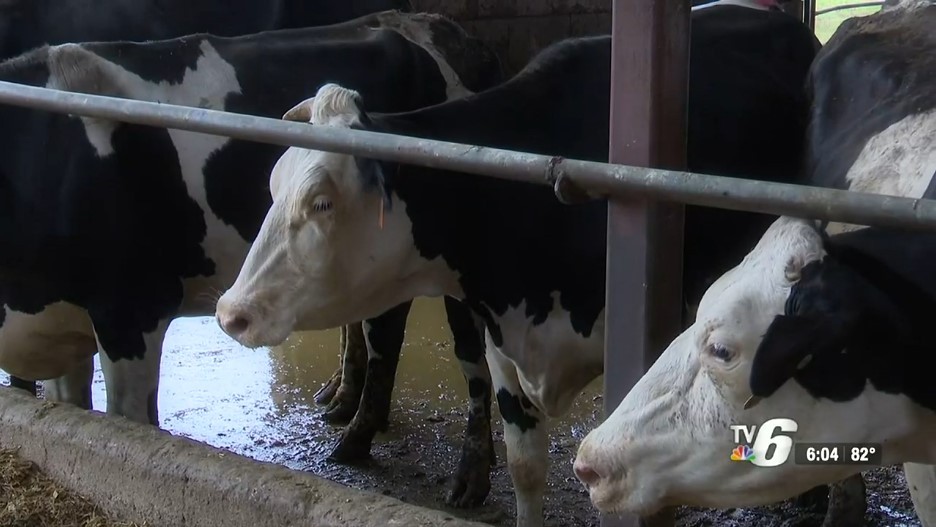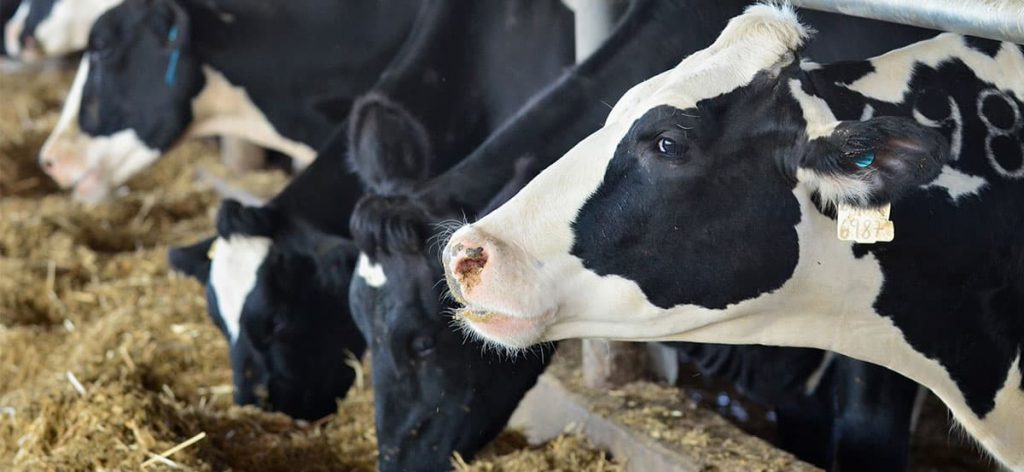
After starting out by milking more than 100 cows in the early 1990s, Brock’s farm has now grown to 800. During that time, the number of other dairy farms in Menominee County has significantly decreased.
“We’ve seen a lot of people leave the industry,” said Brock. “It’s an industry with hours that are not set.”
Brock says in the last 30 years, he’s seen the number of dairy farms in Menominee County drop by about 100. He expects that trend to continue, in part, due to an aging group of farmers.
The latest data from the U.S. Department of Agriculture, from 2017, shows the number of overall farms in Upper Michigan has actually increased by 5.5 percent in the last decade. However, the amount of land being farmed has decreased by nearly 13 percent.

State Senator Ed McBroom, a dairy farmer near Norway, says the bigger farms have only gotten bigger. While many of the smaller farms have had to close due to small profit margins.
“It’s the huge conglomerates that control so much of what you see on the shelf,” said Sen. McBroom, R-38th State Senate District. “You might think you have seven different choices and yet they are all owned by the same exact company.”
McBroom says part of the problem is how hard it is to start a farm because of how expensive it is.
For Nathan McParlan, a first-generation livestock farmer in Hancock, he knows that challenge well; farming is still his part-time job.
“If I could, I would love to farm full time,” said McParlan. “A lot of other people would too. It is hard to make a living doing this though.”
McParlan has now opened a store front, called Frozen Farm Company, with two other farmers on 5th Street in Calumet. One of the store’s co-owners says it is selling locally-raised meat products with the hopes of turning a better profit and benefitting the customer.
“More and more people are concerned about where their food is coming so we try to have health options where we aren’t using anti-biotics, hormones, things of that nature,” said Trevor Hodges, Frozen Farms Company Co-Owner.
The store just opened last week and the owners say the response so far has been positive.
In Sagola, potato farmer Dale Johnson says he’s had a couple of good years thanks to enough rain and a summer that hasn’t been too hot. Potatoes like tempatures in the 70s and 80s.
“We’ve been fortunate this year, we have not had the week-long stretches of warm weather,” said Johnson. “We’ve had warm, but it seems like you get it for three or four days and then it would ease off.”
However, he knows others aren’t as lucky.
“I know there are a few sectors of the ag that are hurting the most,” said Johnson. “Number one would be dairy.”
As a dairy farmer, McBroom says this is in large part because of regulations on milk.
How much a farmer gets paid for his product is set by what the processers and final retailers will pay. Milk prices vary by region and milk type, but overall prices have only marginally increased over the last five years.
“The government is trying to keep prices low at the store for everyone while maintaining a low as possible price they pay to us and its just not a workable solution,” said McBroom.
McBroom says dairy farms often don’t know how much they are getting paid for the milk until a month after it leaves the farm. However, he says its hard to make change saying less farms means less political power.
On Wednesday’s TV6 Early News, I’ll look into where the products produced at these farms go and what concerns farmers have about the industry’s future.

























